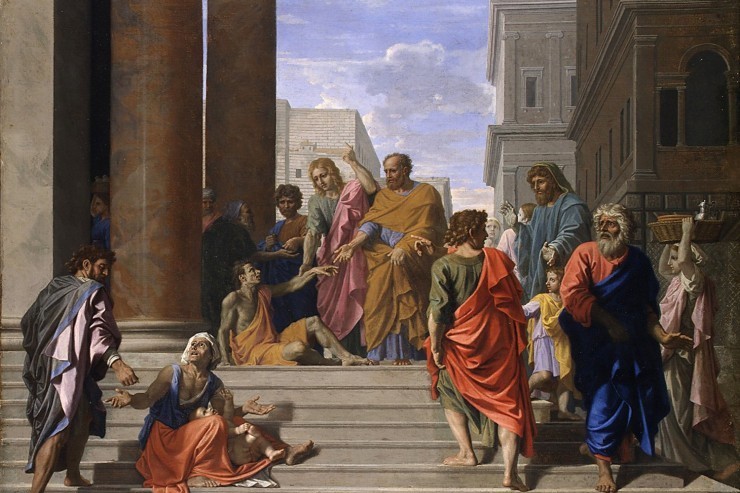Last week, I wrote about what a virtue is and what that looks like in every day life. As a refresher, we want to remember that a virtue is a habitual and firm disposition to do the good (CCC 1804). The virtuous person seeks after the good and chooses it. For a person to be virtuous, it means these choices have become a habit. Thus we should persevere in choosing the good, so it will become easy and second nature to us.
There are four virtues that are called the “cardinal” virtues, from the Latin for “hinge.” All the rest of the virtues depend–or hinge–upon these four virtues: prudence, justice, temperance, and fortitude.
Over the next four weeks, I will be looking at each of the cardinal virtues. In addition to looking at what each virtue means, I want to specifically look at how those virtues are lived out in the workplace. We cannot strive for virtue at only certain times of our day or in particular environments. The woman who cuts corners at work, the man who is lazy at the office, and the student who does not study are not virtuous. Striving for excellence and virtue cannot be compartmentalized into certain arenas of life. As St. Josemaria Escriva reminds us, “[P]eople who neglect obligations that seem less important will hardly succeed in other obligations that pertain to the spiritual life and are undoubtedly harder to fulfill” (Friends of God, 62).
The Mother of All Virtues
Let’s start by looking at prudence, which is known as the mother of all virtues. Prudence is the ability to look at a situation and know how the good is to be pursued. You can see why, then, this is also known as augira virtutum, the charioteer of the virtues. It guides the other virtues. In fact, you cannot be virtuous if you are imprudent.
Prudence is our ability to judge correctly. We can see our moral duty and see what we need to do accordingly. This requires us to know the truth and know the good. As we saw with the previous general overview of the virtues, becoming virtuous doesn’t happen passively. We have to work at it. Part of becoming a prudent person requires forming our conscience and educating ourselves on ethics and morals, and then being courageous enough to listen to our well-formed conscience.
The prudent person gathers information, makes a decision based on that information, on his or her knowledge of truth and goodness rather than emotion or feelings, and then executes that decision.
What Prudence is Not
Sometimes prudence gets a bad name. Think of our expression that someone is a “prude.” It also can have the connotation of being timid. But this isn’t prudence. In fact, prudence often calls us to be the exact opposite of timid. Someone who is prudent might take a big risk, knowing that the pursuit of the good or avoiding evil requires it.
The martyrs, for example, were prudent. They made right judgments–assessing that God’s law was more important than human law, and that it was better to choose death than sin.
This is an important virtue for our time. Sometimes prudence will dictate that we speak up. Sometimes it will dictate that we remain silent. We are called to make decisions and act everyday. Regardless of our vocation, those decisions affect everyone around us.
In the Workplace
Discretion, sound judgment, and discernment are enormous aids in the workplace. Are you the coworker that flies off the handle? Or the one that people seek out for sound, balanced advice?
We can live the virtue of prudence in our dealings both with our bosses and our coworkers. Are you willing to listen to the ideas and input of others, even your staff or subordinates? In meetings, do you rush to judgment or decisions? How do you learn from your own mistakes?
Do you carry out your decisions and plans? Do you change your mind on a whim? Are you tempted to hide behind false prudence, too timid to lead when you need to lead or act when you need to act?
Pray for an increase of the virtue of prudence, and then strive to exercise it. Remember, it is only with the grace of God and then with the repeated exercise of the virtue that we will become virtuous people.
Photo: Prudence, detail from Raphael’s Cardinal and Theological Virtues














